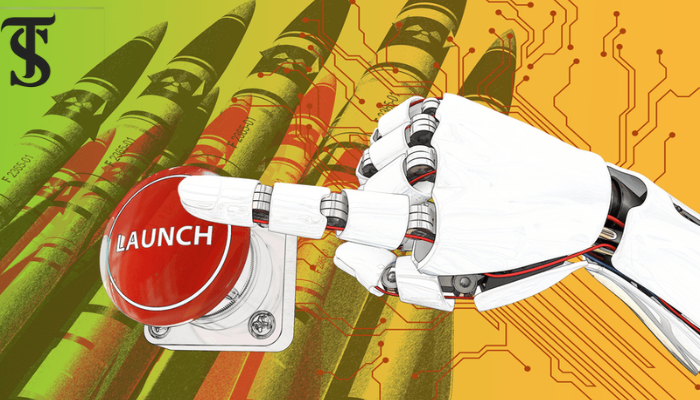Pakistan’s Tech Emergency: A Call for Digital Transformation

- Urgent Need for a "Tech Emergency" – Pakistan must prioritize technological advancement to stay competitive in the global digital economy, focusing on AI, R&D, and deep-tech innovation.
- Bridging the Industry-Academia Gap – Revamping education with cutting-edge technologies and fostering collaboration between universities, startups, and global tech firms is crucial.
- Policy and Investment Reforms – The government must create a startup-friendly environment, allocate significant funds for R&D, and provide incentives to attract foreign investment and tech giants.
In the 21st century, technology is not just an enabler; it is the backbone of economic prosperity, national security, and global influence. Nations across the world are investing heavily in their technological ecosystems, recognizing that the future belongs to those who innovate. The global digital economy is projected to reach $20 trillion by 2030 and countries investing in technology are reaping massive economic benefits.
Pakistan, with its immense talent pool and growing digital infrastructure, has the potential to be a strong player in this global race. However, without urgent intervention and a strategic national vision, the country risks falling behind. Pakistan needs to declare a “Tech Emergency” to accelerate innovation, build a robust digital economy, and ensure competitiveness in the ever-evolving technological landscape.
Major economies, including the United States, China, India, and several European nations, have embraced technology as a strategic asset. Artificial intelligence, quantum computing, blockchain, biomedical engineering, and renewable energy solutions are driving the next industrial revolution. Countries are pouring billions into research and development (R&D), fostering startup ecosystems, and reforming regulatory frameworks to attract global tech giants.
Pakistan, despite having a burgeoning IT sector, lags in crucial areas such as artificial intelligence, semiconductor manufacturing, cybersecurity, and deep-tech research. The country’s share in global tech exports is minuscule compared to regional competitors like India. While India’s IT exports crossed $254 billion in 2024, Pakistan’s stood at a modest $3.2 billion. This stark contrast highlights the urgent need for a national strategy to prioritise technological advancement.
As a consequence, Tech Emergency is not just about boosting exports or attracting foreign investment; it is about securing Pakistan’s future in an era where technological transformation dictates global power dynamics. Although Pakistan produces thousands of IT graduates annually, there is a significant gap between academic knowledge and industry requirements. Pakistan has a young, tech-savvy population that can drive economic growth if provided with the right infrastructure and opportunities.
Countries that have excelled in the tech sector, such as China, India, South Korea, and Germany, have adopted industry-academia collaboration models. Pakistan must revamp its education system to include cutting-edge technologies like AI, quantum computing, data science, and cloud computing. A well-structured tech policy can encourage global companies to set up research centres and development hubs in Pakistan. By providing incentives, streamlining regulations, and ensuring ease of doing business, the country can attract tech giants to invest in local talent.
Pakistan’s startup ecosystem has shown promise, with fintech, e-commerce, and EdTech startups gaining traction. However, the lack of funding, mentorship, and regulatory support hinders their growth. Tech Emergency should prioritise funding mechanisms, incubation centres, and policy reforms to nurture homegrown startups.
Practically, tech emergencies require a multi-faceted approach involving government, the private sector, and academia. A high-powered government body should oversee technological advancements, ensuring alignment with national goals. This authority should work closely with political leaders and academia to set targets and track progress.
Without further ado, the government must allocate a significant budget for R&D, focusing on AI, quantum computing, biotech, cybersecurity, and renewable energy. Collaboration with international tech firms and universities can accelerate knowledge transfer. Creating dedicated tech hubs with world-class infrastructure, tax incentives, and regulatory support will attract foreign investment and foster innovation.
Indistinguishably, bureaucratic hurdles and excessive taxation deter startups from thriving. A startup-friendly policy, with tax exemptions, funding grants, and ease of incorporation, can help Pakistan produce unicorn companies. Before anything else, universities must modernise their curricula to include emerging technologies, industry-relevant certifications, and real-world problem-solving projects. Vocational training programs should equip students with skills needed in the digital economy.
The world is moving fast, and technology is the driving force behind economic dominance and national security. Pakistan cannot afford to remain a spectator in this global competition. Declaring a tech emergency is not just a necessity; it is an imperative for survival and growth. The government, private sector, and academia must unite to chart a new course where Pakistan stands as a formidable force in the digital age, and Pakistan must position itself at the forefront of transformative technologies. The time to act is now, or Pakistan risks being left behind in the global tech race.

Mirza Abdul Aleem Baig
The author is the President of the Strategic Science Advisory Council (SSAC) Pakistan. He is an independent observer of global dynamics, with a deep interest in the intricate workings of techno-geopolitics, exploring how science & technology, international relations, foreign policy, and strategic alliances shape the emerging world order.





